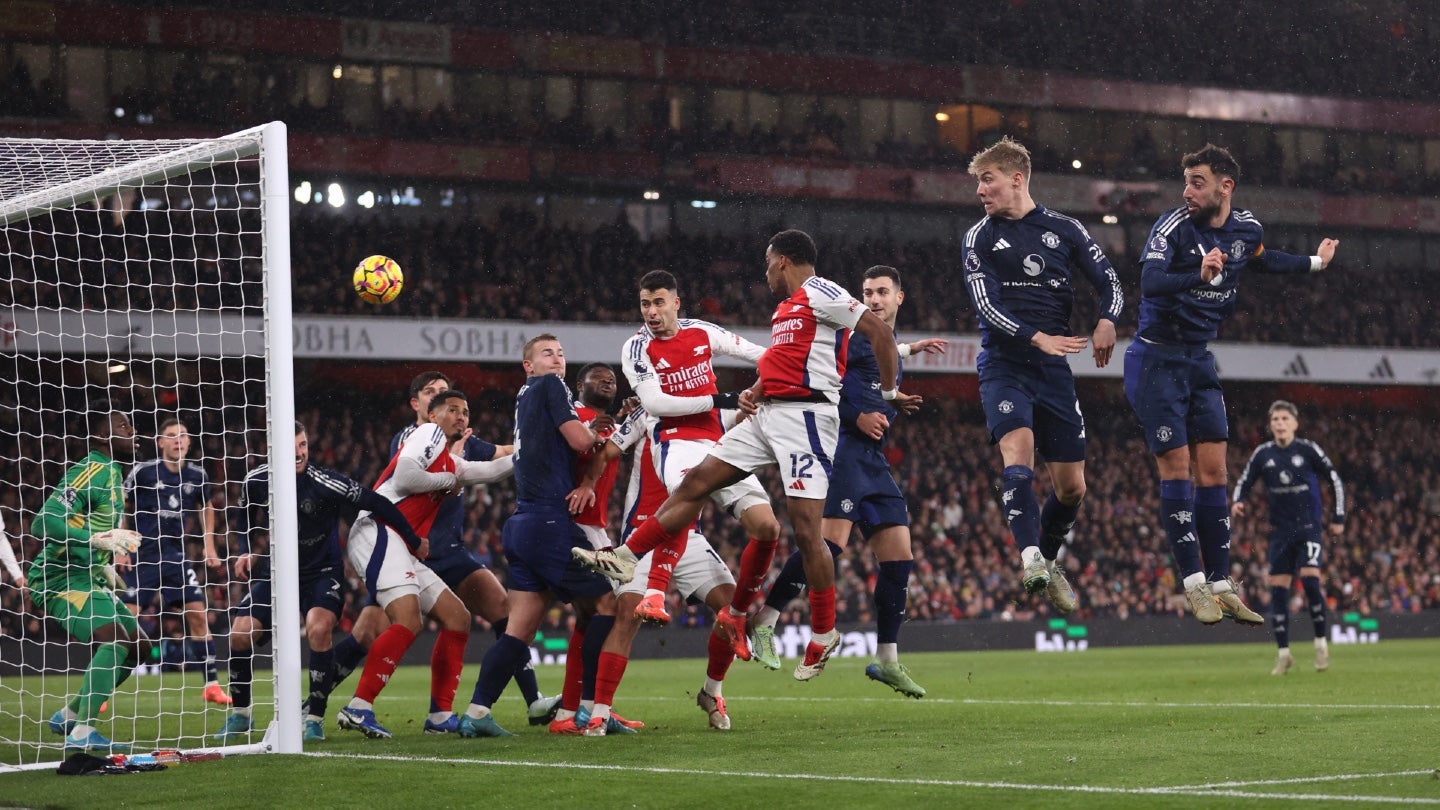
Arsenal, the top Premier League English soccer club, secured record revenue of £616.6 million ($776.1 million) in the 2023-24 financial year, up 32% year-on-year.
The increase from the 2022-23 season – of around £150 million – came as a result of boosts to each of the club’s main revenue sectors – broadcast (up by over £70 million), commercial, and matchday. Arsenal’s return to competing in the prestigious and lucrative UEFA Champions League last campaign was a major factor behind the overall rise in income.
The financial report for the 12 months up to May 31, 2024, was published by the North London club today, who say they “continue to be compliant with all applicable financial sustainability regulations put in place by UEFA [European soccer’s governing body] and the Premier League.”
However, due to making several expensive new acquisitions for the men’s first team, which also meant a wage bill increase from 2022-23, Arsenal still made a loss last year of £17.7 million overall. That came following a 2022-23 loss of £51.1 million.
In terms of the specific revenue sectors, broadcast brought in £262.3 million, commercial was responsible for £218.3 million – a rise of close to £50 million – and matchday operations delivered £131.7 million.
In 2022-23, matchday revenue amounted to £102.6 million, with the return of Champions League games to the Emirates Stadium accounting for much of the difference.
Broadcast revenue in 2022-23, meanwhile, only amounted to £191.2 million, with the higher levels of distribution from Champions League revenues – as opposed to from UEFA’s second-tier Europa League – the primary factor behind last season’s substantial increase.
Across Arsenal’s commercial operations, significant activity in 2023-24 included a renewal and extension with principal partner Emirates (stadium naming rights partner as well as front-of-shirt sponsor), and a new deal with real estate brand Sobha Realty. That brand is now the naming rights sponsor for the club’s training center.
However, all this was offset by the club’s wage bill (across men’s and women’s teams), rising from £234.8 million to £327.8 million in 2023-24.
On the pitch, Arsenal finished runners-up in the EPL for the second year running in 2023-24, behind champions Manchester City. They also made it through to the Champions League quarter-finals, before being knocked out by Germany’s Bayern Munich.
They currently sit second in the 2024-25 EPL, this time behind Liverpool.
The club’s year-end cash position – as of last May – was £66.8 million.
Elsewhere in the EPL, Arsenal’s rivals (and sleeping giants) Manchester United disclosed a 12% year-on-year decrease in revenues during the second fiscal quarter (Q2) of 2025.
As outlined in their Q2 results today, United – who are struggling on the pitch this season, as well as off it – secured revenue of £198.7 million during the three months up to December 31, down from £225.8 million during the equivalent period in 2023.
They also saw operating profits decrease substantially year-on-year, dropping from £27.5 million to a mere £3.1 million. Overall, the club made a loss of £27.7 million in Q2.
The revenue drop was due to broadcast income falling from £106.4 million to £61.6 million – Q2 of 2023-24 saw United competing in the Champions League, whereas this season they had to make do with the Europa League. This broadcast income decrease negated the rise in both commercial and matchday income year-on-year.
Q2 EBITDA (earnings before interest, taxation, depreciation, and amortization) also fell, dropping from £91.4 million to £70.5 million.
Another notable item in United’s accounts is the £14.5 million related to “costs associated with the departure of … various members of football staff.” These include previous men’s team manager Erik Ten Hag, and Dan Ashworth, who arrived as sporting director in July before being dismissed at a reported cost of £4.1 million, only five months later.
The club’s minority owner, Sir Jim Ratcliffe (who holds a 29% stake), has so far made in the region of 250 employees redundant and is reportedly set to instigate a second round of redundancies – which could affect another 200 staff – soon.
Some media reports have suggested he fears for the club’s financial viability if such cutbacks are not enacted.
Ratcliffe was confirmed as a minority stakeholder last February, taking over operational control of all on-pitch matters from the unpopular Glazer family.
However, there are now increasing doubts from some sections of the fanbase about his decision-making, with United sitting 15th in the 20-team EPL after close to two-thirds of the 2024-25 campaign.



